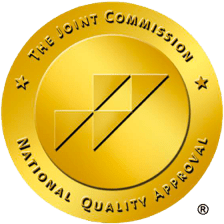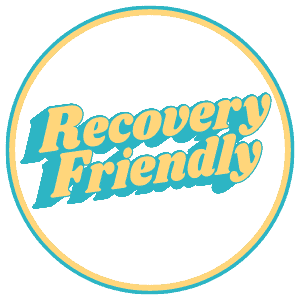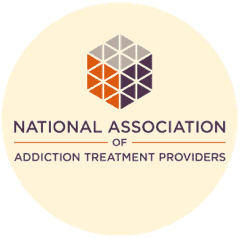Most people associate addiction with drug and alcohol abuse; however, addiction comes in many forms. While substance abuse seems to be a prominent and more common form of addiction, behavioral and impulse addictions are equally as prevalent. They can negatively impact one’s emotional, mental, and physical well-being if not appropriately treated. Continue to learn more about different types of addictions.
Addiction is a disease that affects the brain’s reward system. When an individual seeks pleasure through addictive substances, shopping, or playing video games, their brain is flooded with a surge of dopamine. After consistently seeking this “high” feeling over an extended period, the brain becomes less sensitive to the dopamine rush, which enhances the desire to seek more and more of this pleasurable act, ultimately leading to an addiction. These pleasure-seeking habits can lead to negative consequences such as lifestyle dysfunction, financial distress, mental health issues, relationship challenges, and much more. Below is a breakdown of various forms of addiction and how to spot addictive behaviors.
Internet Addiction
Internet addiction often begins as a way to escape from reality. At first, this form of addiction may be insignificant or unrecognizable, such as someone spending too much time on their computer as a means to unwind. Later on, the computer is the only outlet they desire. Blue light screams at them from across the room, and they fall back into the trap. They seem to only find comfort from being behind a screen and cannot see the need to engage in everyday life.
Certain behaviors to look out for with internet addiction are violent mood swings when their phone or computer is taken away, withdrawal symptoms such as depression and isolation, and physical or emotional distance from family and friends. The younger generation is primarily affected by internet addiction, with an average of 50% of teens admitting they feel addicted to their devices. Likes and notifications from social media platforms can have a hold over their life, and each ring from their phone or computer can jolt the release of dopamine.
Sex Addiction
Sex addiction is a complex disease. It is not only related to sex but to relationships and pornography as well. Sex addiction can result in an individual becoming promiscuous, leading them to a vulnerable and dangerous situation as they seek out new partners. Sex addiction can result in behaviors such as watching pornography consistently, prostitution, and getting lost in the fantasy of sex rather than reality. Behaviors to look out for if you suspect a loved one may be suffering from sex addiction include:
- Isolating with a partner
- An influx of new intimate relationships
- Losing interest in daily and necessary activities or activities that were once desirable for them
- The compulsive need to watch pornography
- Even signs of domestic abuse
Shopping Addiction
Compulsive shopping and stealing add to the list of common forms of addiction. The high of acquiring a new item, whether through legal exhange or illegal practices, can release dopamine in the same way an alcoholic feels as they take a sip of their next drink. Hoarders are a perfect example of this. Houses can be stuffed to the brim with objects that, to others, seem unimportant, but they are a sense of comfort to the addict. Pressing that “buy now” button or swiping a card at a store can ignite that dopamine rush.
Over time, a shopping addiction can take a toll on an individual’s financial well-being. As an individual suffering from a shopping addiction continues to make purchases, they may not consider if they can afford them before they swipe their card or press the buy now button from the comfort of their home. If you think a loved one may be facing a shopping addiction, look for signs such as increasing debt, stealing money from others, low self-esteem, and feeling overwhelmed.
Food Addiction
We’ve all likely experienced eating a slice of pizza or an ice cream cone that ignited your tastebuds and gave you a sense of happiness with each bite. After satisfying your hunger, you are probably ready to stop eating, but for those with a food addiction, the eating does not stop there.
The occasional snacking when going through a hard time may seem normal to most, but when food becomes the only source of security a person recognizes, it can cause severe damage to one’s physical and mental health. In addition, overeating as a symptom of food addiction can cause significant health issues such as obesity, diabetes, and heart disease.
Most of our serotonin receptors live in our gut, which means you feel what you eat. Think of a food coma after fast food. Those chemicals are difficult for your body to process, resulting in less frequent serotonin release. Serotonin is known to affect happiness, sexual arousal, and sleep. Again, the addict must have another “hit,” in this case, a bite of food, to avoid these crashes. This vindictive cycle can transform food from nourishment into destruction. Some signs to look out for in an individual battling a food addiction include compulsive eating, a disregard for food quality, and depression.
Work Addiction
Occasionally working late hours can be great for job performance or working your way to promotion, but in excess, striving for success can become addictive. Putting work at the center of your world can often lead to isolation as an individual neglects their mental and physical well-being and relationships with family and friends. This compulsive behavior may seem less severe than others. One may say, “He is working hard to provide for the family; isn’t that a good thing?” The answer is yes and no.
Being a hard worker is an excellent quality, but when taken to addictive levels, it can represent the same issues as other addictions, such as substance abuse. For example, the compulsive desire to get a promotion or a raise can consume an individual’s mind. Soon, spreadsheets, meetings, and conferences become their sole source of reward and happiness, which can eventually negatively impact relationships with their loved ones.
Don’t get hard work confused with being a work addict. Symptoms of someone with a work addiction include intense fear of failure, losing sleep trying to catch up or overachieve on assignments, constantly talking about work, and physical symptoms such as chronic headaches, difficulty concentrating, and consistent eye strain from staring at a computer.
Gambling Addiction
Gambling is a common form of addiction, affecting over 2 million people in the U.S. as of today. The rush of more money and winning a poker game can give a gambling addict feelings of control and a delusion of power over luck. An individual addicted to gambling does not have to gamble daily to experience suffering. Once the behavior reaches behaviors such as sneaking around, increasing debt, and the inability to stop gambling even when they want to, there is a problem.
Money is not the only motivator in gambling addictions. Going to a casino can provide the addict with a sense of social connections, and winning a game can give a feeling of power. Being distracted by all the lights, bells, and cheering audiences can make for a great distraction from other areas of their life. If you suspect your loved one is suffering from a gambling addiction, please know that help is available.
Drug Addiction
One of the more well-known forms of addiction is drug abuse. Drug addiction can start as an occasional act of using substances such as marijuana and gradually lead to an interest in trying other, more potent substances such as heroin. The first high can be delightful and create a feeling of euphoria. Unfortunately, after getting a taste of this feeling, individuals will spend the rest of their days chasing the feeling from that first high, never to be found again due to building up a tolerance.
Clear signs to look out for with drug addiction include:
- Enlarged or shrunken pupils
- Profuse sweating
- Grinding teeth
- Withdrawal from daily activities or relationships
- Violent mood swings or delusions
Less obvious symptoms can be obtaining suspicious amounts of cash or running out of money frequently, not coming home, track marks covered by clothing, keeping secrets or trying to hide their whereabouts or significant changes in energy levels.
Alcohol Addiction
Alcohol is an easily accessible substance as it is legally available in stores on almost every corner of any city. Like other forms of addiction, alcohol addiction can start as a way to escape reality and eventually lead to a physical dependence on alcohol. When drinking enough to feel intoxicated, the feeling of being hungover soon sets in, along with a sense of guilt. These negative feelings then lead to repetitive drinking behaviors as an escape.
The most common signs of alcohol addiction include frequent consumption of alcoholic beverages, withdrawal symptoms such as jitters, mood swings, or severe depression, and interactions with law enforcement. Often, alcoholics won’t face legal consequences and can become very cunning with how they hide their drinking. If you are concerned about a loved one affected by alcohol addiction, sit down, and talk with them. Your support may be all they need to seek treatment.
Addiction Treatment
There are many forms of addiction treatment. 12-step programs such as Alcoholics Anonymous, Narcotics Anonymous, Sex Addicts Anonymous, or even Overeaters Anonymous can help with addiction. These fellowships not only provide 12 steps to overcome addiction but offer a sense of community as well. Next Step Recovery provides a 12-step program for men, which has proven successful in the fight against addiction.
Individuals suffering from addiction can combine different forms of therapy, healing practices, meditation, and exercise for a well-rounded recovery. At Next Step Recovery, we offer many forms of therapy in tandem with addiction treatment programs.
It takes hard work and dedication, but with the right help, freedom from addiction is possible. Reach out today to learn more about our addiction treatment programs and how we can help you reclaim your life.









